Week one of the election campaign marked the return of Opposition leader Bill Shorten in a much-loved role — the Hollow Man. It brought back fond memories of his bravura performance in 2012 when he was Minister for Financial Services and Superannuation in the Gillard government. Asked whether Peter Slipper, the then Speaker of the House should continue to stand aside until the claims of sexual harassment made against him had been addressed, Mr Shorten said: ‘I understand the Prime Minister’s addressed this in a press conference in Turkey in the last few hours. I haven’t seen what she said but let me say, I support what it is that she said.’
Interviewer David Speers was dumbfounded. ‘Hang on, you haven’t seen what she said…’ he queried, but Mr Shorten cut him off, repeating, ‘But I support what my Prime Minister said,’ whilst nodding his head with all the conviction of a sock puppet.
‘Well, what’s your view?’ Mr Speers continued. ‘Well my view is what the Prime Minister’s view is,’ Mr Shorten continued like a Stepford Wife. ‘Surely you must have your own view on this,’ persisted Mr Speers. ‘No,’ Mr Shorten replied, a little surprised that he was expected to have his own view on anything. He explained again, as if Mr Speers was a slow learner, that he, Mr Shorten, had no need to know what his Prime Minister had said because he would back her, blindly, obediently, happily. ‘I’m sure she’s right,’ he concluded, just a tad petulant.
Mr Shorten’s protestations of loyalty turned out to be as reliable as his performance was convincing. He adroitly switched back to Mr Rudd, when it was expedient, positioning himself for the leadership. Now that he has it, Mr Shorten still seems to be parroting party lines that somebody else thought up. Asked if he could rule out increased taxes on superannuation, he said he had ‘no plans’ to do so.’ It was as if he had somehow forgotten about the $34 billion in higher superannuation taxes that he’d announced at the National Press Club in August 2016, abolishing catch-up contributions, reducing the threshold for concessional and non-concessional contributions and removing deductible personal contributions.
The next day, Mr Shorten was forced to make the embarrassing admission that he was indeed increasing taxes on superannuation, making it more expensive for voters to support themselves in retirement. ‘I thought I was being asked if there were unannounced changes to superannuation,’ Mr Shorten said sheepishly. ‘But obviously we have changes which we outlined three years ago. I should have picked the words better, no question.’
Then, in the best Stalinist tradition, Labor’s superannuation policy was mysteriously removed from its website.
A similar story played out on housing policy. Labor plans to remove negative gearing for investors in the property market, except for new dwellings, and reduce the capital gains tax discount on assets to 25 per cent — proposals damned by industry experts who say it is based on ‘substantially incorrect’ analysis and could trigger a ‘catastrophic’ investment collapse in housing markets. Labor relied on ABS data to try to show that negative gearing and the capital gains tax discount have not boosted the housing supply and only increased the cost of houses. So, it was rather embarrassing when the ABS pointed out that it didn’t collect such data. Once again, 90 paragraphs of housing policy disappeared from the ALP website and Mr Shorten was unable to say where they were, or when they would return.
Mr Shorten’s most important failure however was his inability to explain the economic consequences of his emissions reductions policy and in a Marie Antoinette moment to imply that it simply didn’t matter because of the cost of ‘extreme weather events’. Mr Shorten claims that almost doubling Australia’s emissions reductions target will not cost any more than the government’s policy because Labor will allow companies to buy international carbon credits, relying on modelling commissioned by DFAT from economist Warwick McKibbin in 2015. Asked if he backed Mr Shorten’s assertion, Professor McKibbin pointed out that he couldn’t because the cost would obviously depend on the international price of carbon credits. Moreover, he was ‘surprised’ that Labor had not bothered to speak to him, despite relying on his work from four years ago, that had been subject to substantial price changes in that time.
The sloppiness in Labor’s approach to radical economic prescriptions is only matched by Mr Shorten’s indifference to their consequences. Buoyed up by the opinion polls for three years, he doesn’t seem to care what he is proposing. It’s as if the real candidate to be prime minister is still in Turkey and he is sure she is right.
Mr Shorten now seeks to become the incredible shrinking target, deleting prescriptions yet not disavowing them. But don’t bother to ask him about the damage they will do. He doesn’t know, he doesn’t care, he is the Hollow Man, headpiece filled with straw.
Got something to add? Join the discussion and comment below.
Get 10 issues for just $10
Subscribe to The Spectator Australia today for the next 10 magazine issues, plus full online access, for just $10.
You might disagree with half of it, but you’ll enjoy reading all of it. Try your first month for free, then just $2 a week for the remainder of your first year.


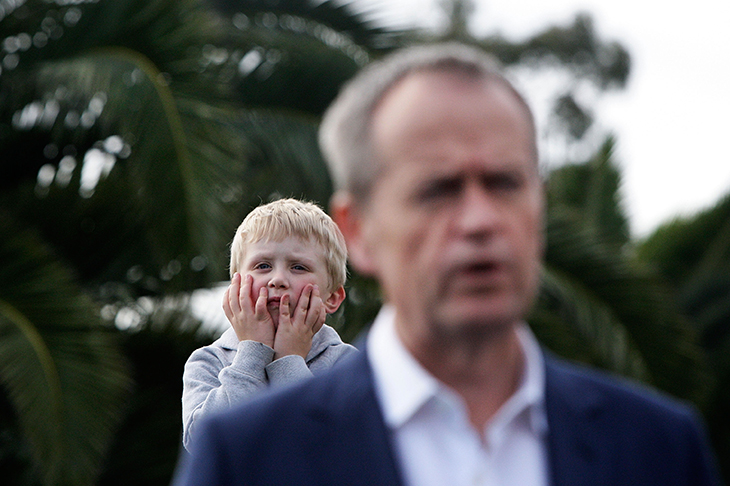
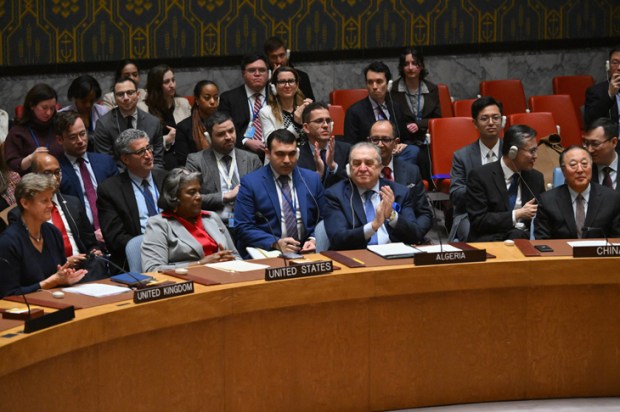
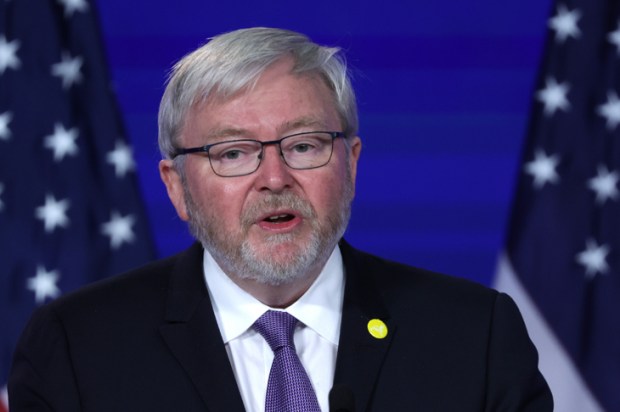
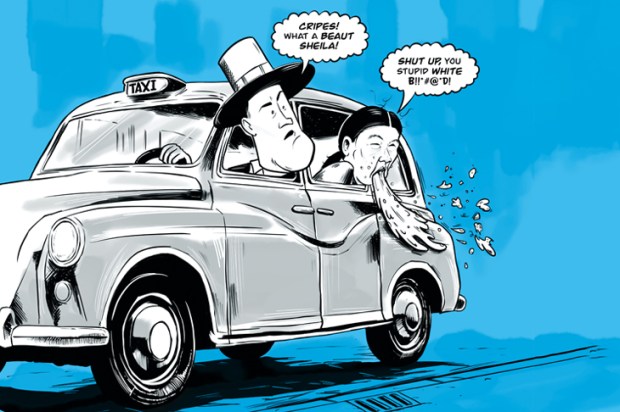
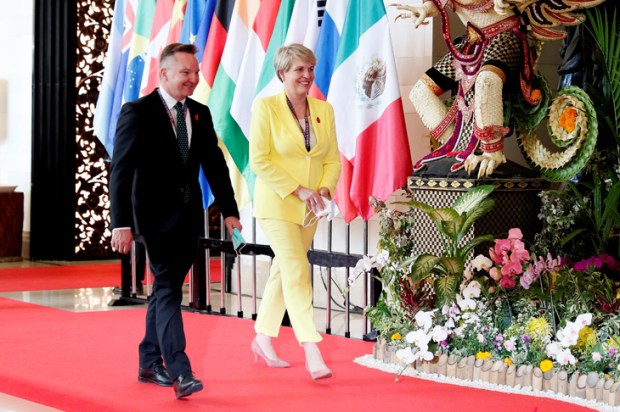
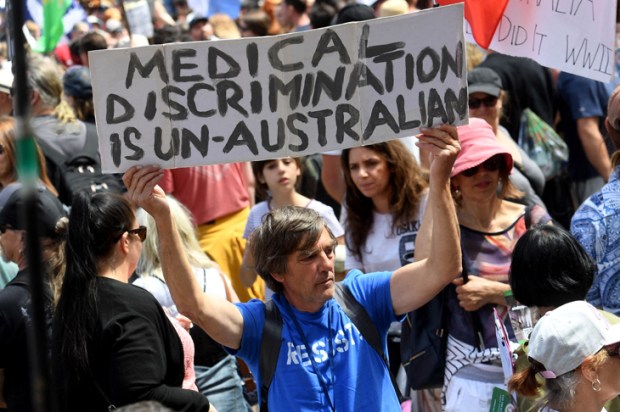
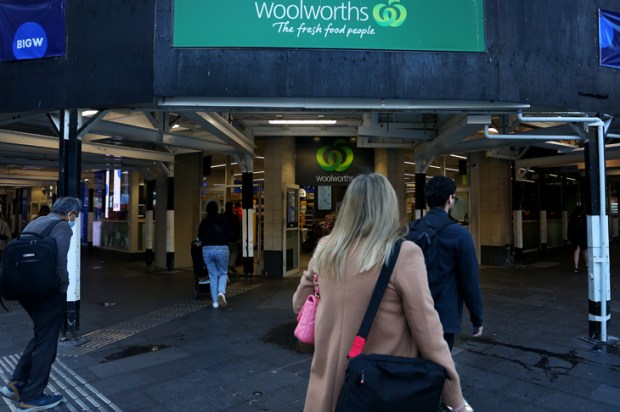






Comments
Don't miss out
Join the conversation with other Spectator Australia readers. Subscribe to leave a comment.
SUBSCRIBEAlready a subscriber? Log in